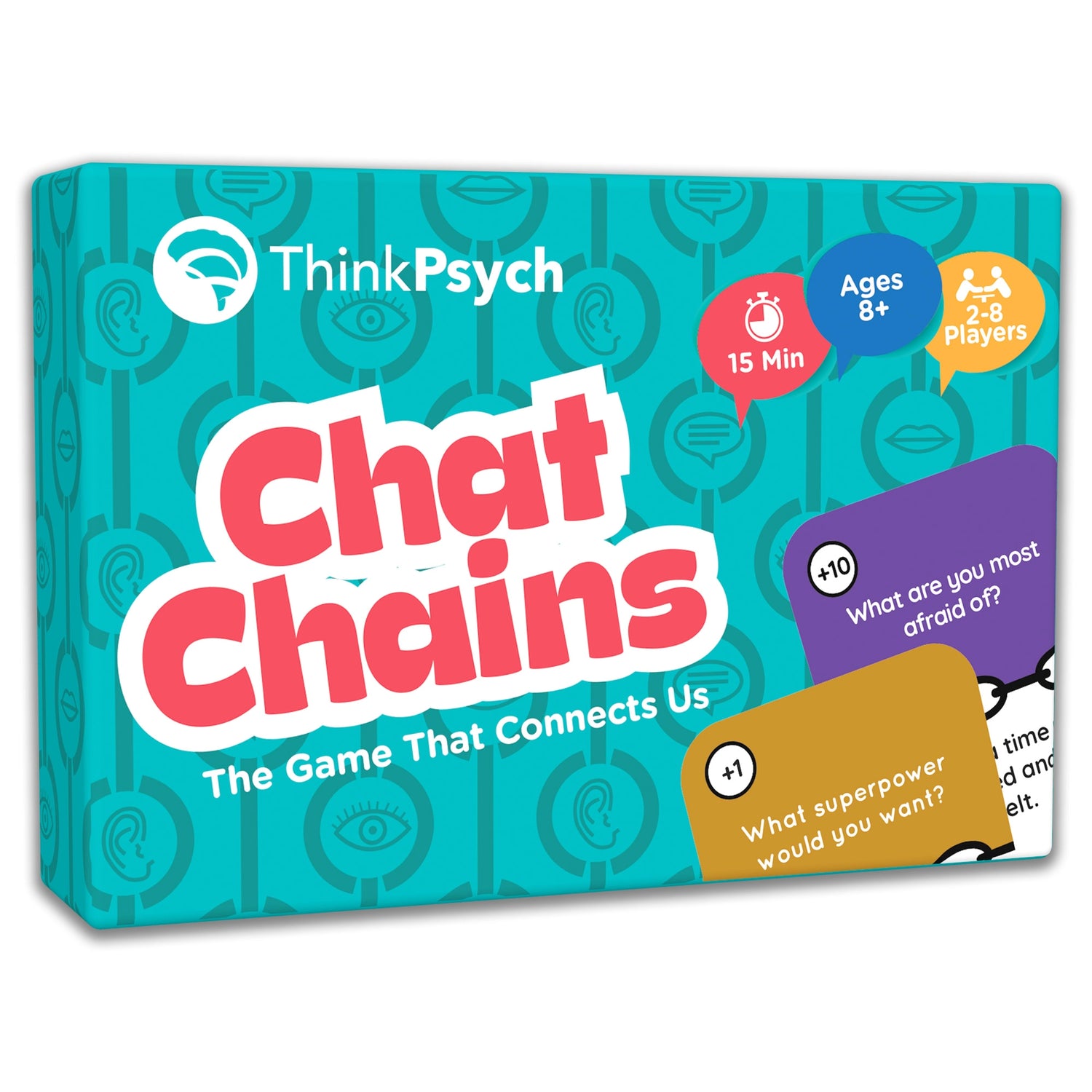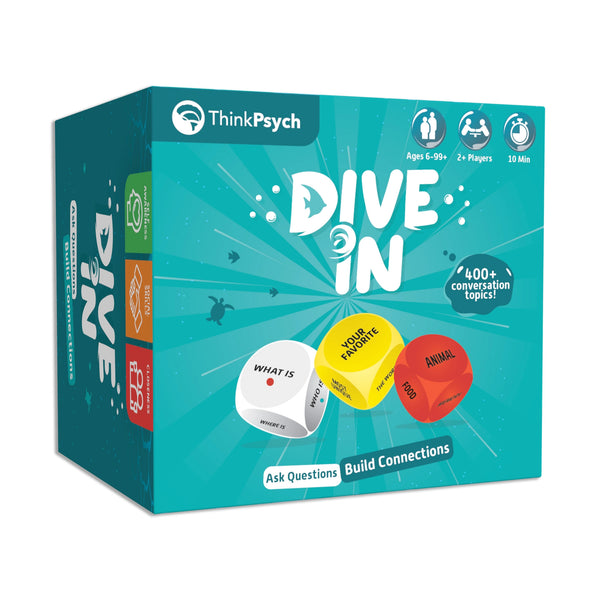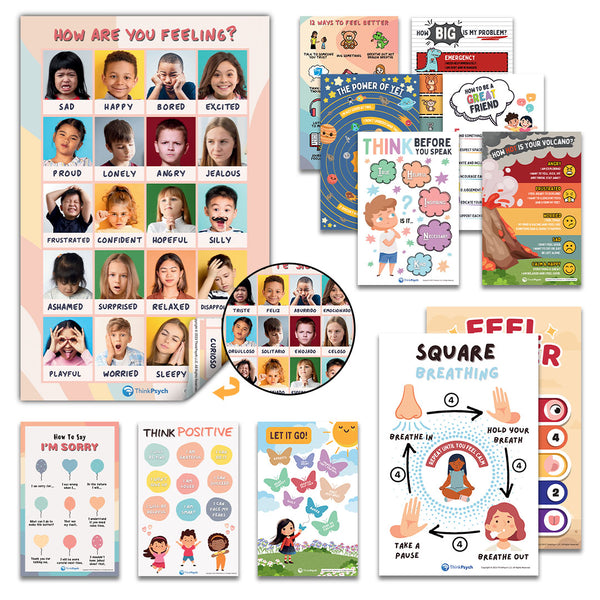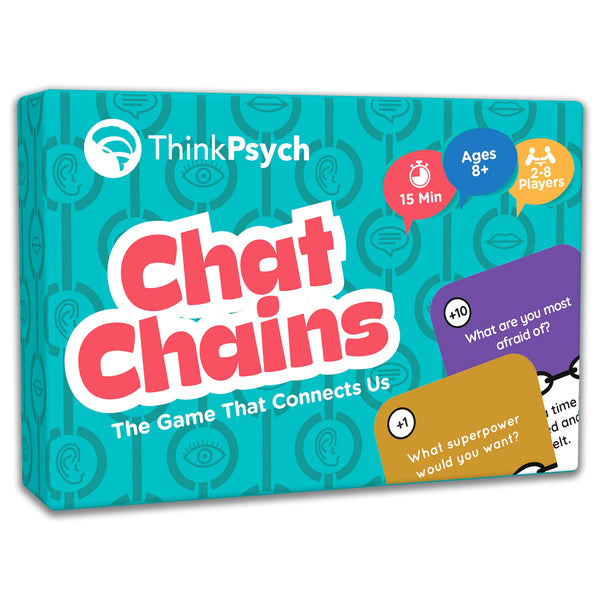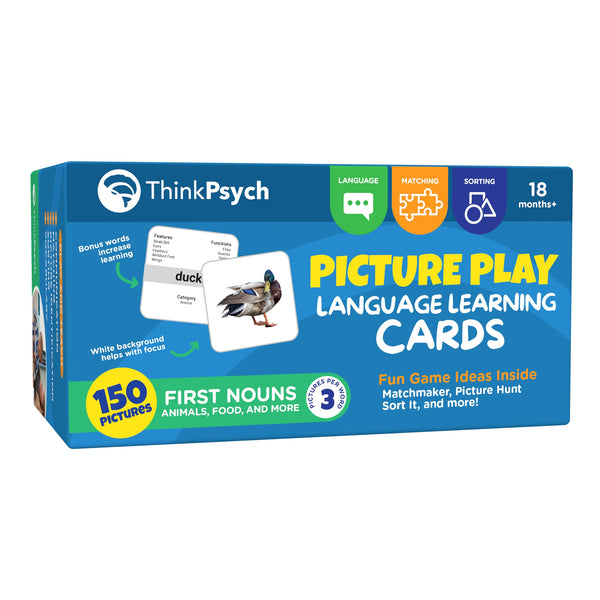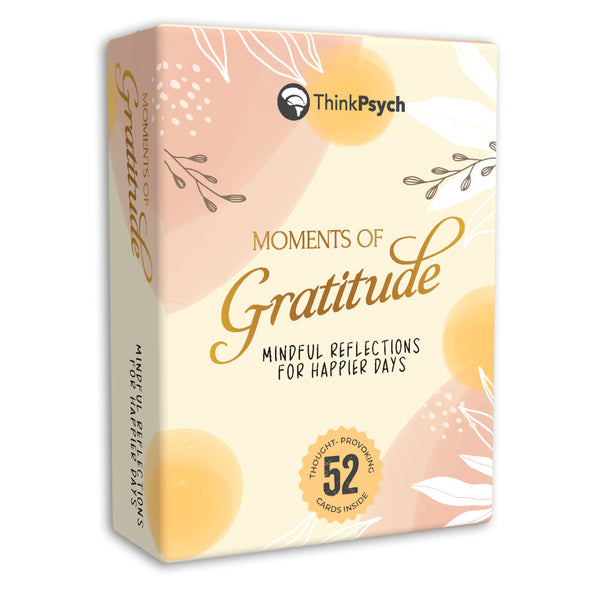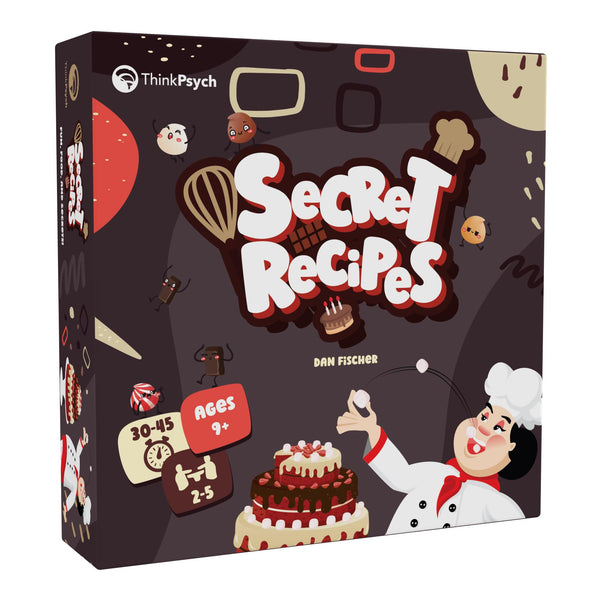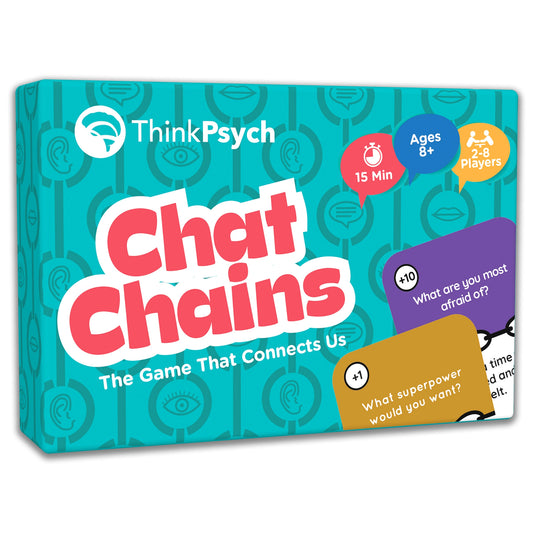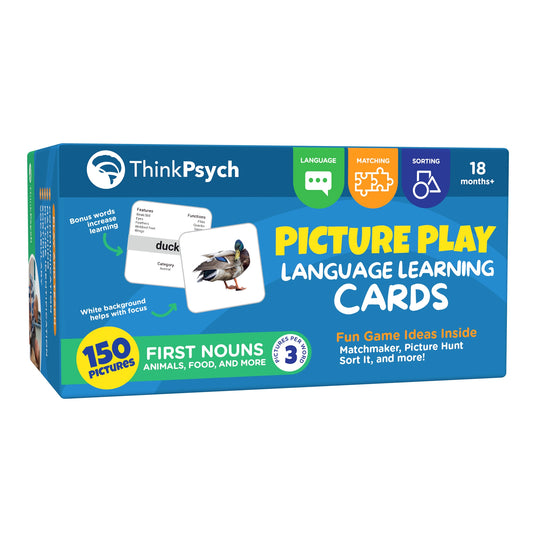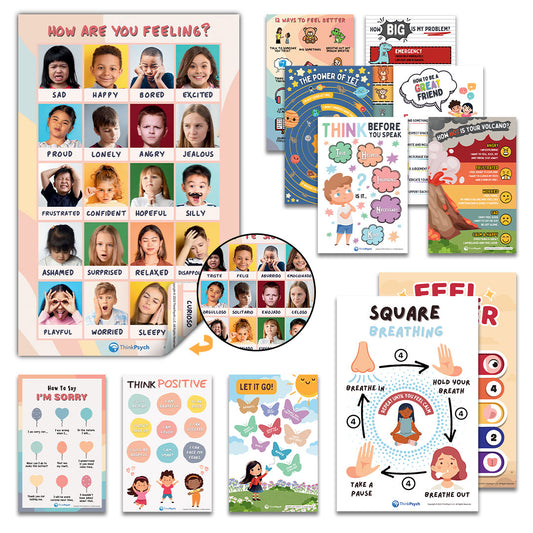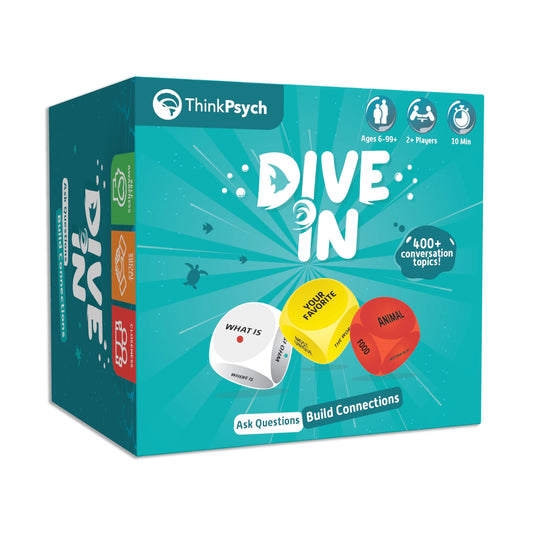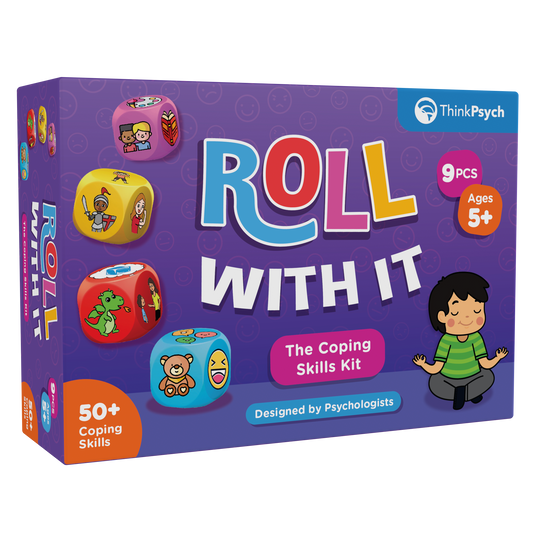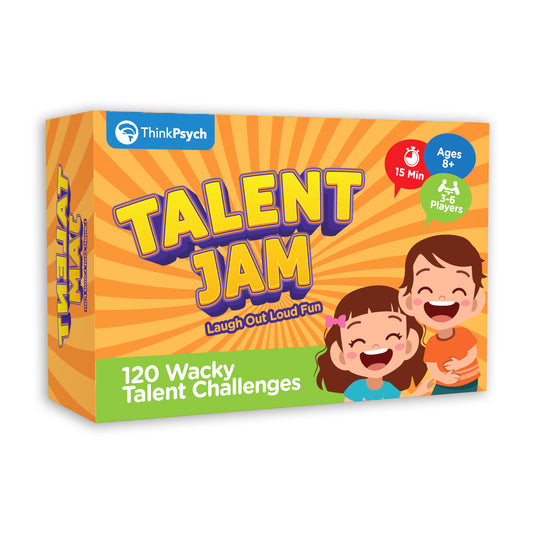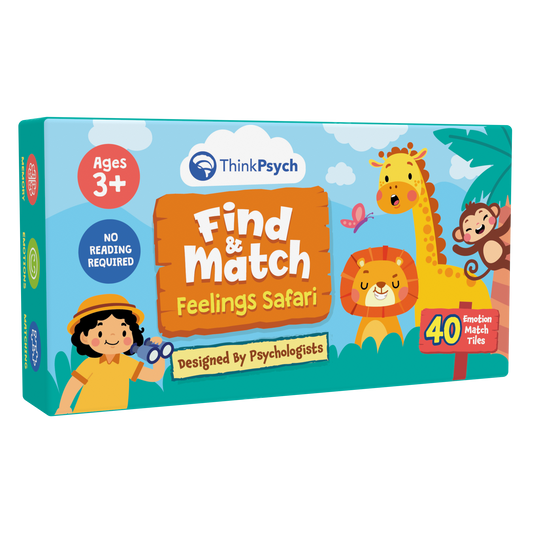
CBT Games for Kids to Foster Positive Emotional Habits
Share
CBT (Cognitive Behavioral Therapy) is a highly effective way to improve kids’ emotional regulation. In fact, 60% of young people who undergo CBT show significant reductions in anxiety.
Play therapy is one the main methods of successful CBT, as it allows children to role-play, problem-solve, and relax. Fortunately, there are a myriad of CBT games for kids that can engage their minds and support emotional self-awareness.
Here our experts at ThinkPsych have cultivated a list of the best CBT games for kids, so that you can stock up your child’s playroom and ensure there are plenty of opportunities to improve emotional management.
What Is CBT for Kids?
CBT (Cognitive Behavioral Therapy) is a method to help kids identify, communicate, and manage their emotions. With it, kids can create coping mechanisms to handle difficult life events and big feelings, such as stress, depression, grief and trauma. It’s also recommended for specific mental health conditions, such as anxiety, ADHD and eating disorders.
For kids, CBT is a technique to learn to be your own “emotions coach.” In studies, CBT has been shown to help children calm down, problem-solve challenging situations, face their fears, and cultivate positive thinking patterns.
Types of CBT Activities for Kids
-
Play therapy. Any games, crafts and activities that help kids engage, problem-solve, and practice emotional regulation.
-
Restructuring. The mental process of flipping negative thinking habits into positive ones. Instead of a kid saying “I stink at basketball,” he could say “I’m not good at basketball now, but I will practice to improve.”
-
Modeling. This is when kids role-play situations with others and demonstrate different ways they might respond.
-
Relaxation. Activities such as meditation, breathing and more can help your child calm down and respond better.
Introducing CBT to Kids
CBT is often recommended for school-aged kids, especially if they’re struggling to manage their emotions, going through a major life event, or are diagnosed with a mental health condition.
Professional therapists use CBT with children at schools, hospitals, community centers, and therapy practices. Yet, you can also include CBT habits with your kid at home. (Though keep in mind that this doesn’t replace the need for professional therapy.)
Ultimately, the values behind CBT can be useful for any young kids. If you’re introducing CBT at home, it’s useful to compare it to any other activity that your child does. For example, you can explain CBT as “practicing” emotional health – similar to practicing an instrument or a sport.
Benefits of CBT Games for Kids
CBT games are designed to help kids become self-aware of their thoughts and feelings, enabling better regulation. At the same time, these games strive to transform negative thinking habits into positive ones, paving the way for powerful behavioral change.
Key benefits of CBT games for kids include learning to:
-
Identify emotions
-
Self-talk
-
Change negative thoughts
-
Calm down
-
Visualize an outcome
-
Set personal goals
-
Cope with triggers
Overall, these advantages improve quality of life for children and help them grow into emotionally healthy adults.
Top 10 CBT Games for Kids to Try Out
CBT games for kids are focused on engaging their minds, solving problems and talking about big emotions. Here are our top picks for CBT-designed games and meaningful play!
Shop ThinkPsych Products
1. Chat Chains
Chat Chains is a fun conversational game that encourages kids to share, empathize and boost their confidence. It includes 150 topics written by licensed psychologists, enabling hours of fun. What’s more, Chat Chains is trusted by families and professionals, winning the 2022 Family Choice & Creative Child Game of the Year.
2. CBT 123
CBT 123 is a card game that lets kids practice expressing emotions while acting out silly combinations of situations. It’s easy to learn and the sets are designed to be educational and fun.
3. Emotional Roller Coaster
Emotional Roller Coaster is a CBT board game aimed at improving anger management and calm down strategies. Kids will learn to cope with scenarios, solve problems and express emotions.
4. Secret Recipes
Secret Recipes is a fast-paced baking game that encourages kids to read social cues and improve frustration tolerance. Kids can collect ingredients to complete their own recipes or steal other player’s recipes! Secret Recipes includes 8 different bakers with unique abilities for lasting fun.
5. Garybank Emotional Darts
Garybank Emotional Darts involves kids throwing a sticky ball onto a dart board and completing an emotional challenge from the question die. It’s interactive, fun and helps kids identify and express their feelings.
6. Find & Match: Feelings Safari
Find & Match: Feelings Safari is a dynamic matching game. Kids have to match together the people and animals showcasing the same feelings. It’s the ideal game for kids to identify emotions, develop self-awareness, and build emotional intelligence.
7. Don’t Go Bananas
Don’t Go Bananas is a card game focused on five big emotions (anger, sadness, worry, fear and jealousy). Kids answer unique question prompts, allowing them to think through situations and their emotional reactions.
8. Go Fish: Faces and Feelings
The classic Go Fish game gets a twist in this emotional learning game. Kids have to act out the feeling instead of asking if somebody has the card. Through gameplay, kids learn to identify and express emotions while having fun.
9. Dive In
Dive In is a conversation game to help kids build deeper connections. Roll the dice to create unique topics of conversation. When you land on DIVE IN, pick a card to dive in to a thought-provoking conversation.
10. Imagine Meditation Cards
Imagine Meditation Cards is an award-winning kit designed for parent-child bonding. It has 24 large-sized scripts with beautiful illustrations that guide kids through mindfulness reflection and breathing exercises.
Other DIY CBT Games for Kids
Of course, you don’t have to purchase CBT games for kids to reap the benefits of this therapy. You can also create your own activities at home. Anything that engages your child in storytelling, role-playing or self-regulation is ideal, such as:
-
Books
-
Journaling
-
Crafts
-
Sports
-
Outings (parks, libraries, escape rooms, etc.)
Lean on ThinkPsych for Expert-Backed CBT Games for Kids
CBT is a great tool to work on emotional intelligence and social skills, such as self-management and coping mechanisms. Check out our list of the best CBT games for kids to make this therapy fun and engaging for your child.
At ThinkPsych, our mission is to support parents in raising emotionally healthy kids. Leveraging our strong background in psychology, we’ve designed CBT games (and more!) aimed at boosting your child’s EQ.
Our latest is a coping skill kit called Roll With It. The goal of the kit is to help kids identify feelings and create coping strategies. It features interactive dice, feelings identification cards, a mindful sensory mat, a write & draw tablet, a stress ball, boredom busters cards and more. Check it out here!
References:
-
American Psychological Association, What is Cognitive Behavioral Therapy?, https://www.apa.org
-
Mayo Clinic, Cognitive Behavioral Therapy, https://www.mayoclinic.org
-
HealthLine, How Is Cognitive Behavioral Therapy (CBT) Different for Kids?, https://www.healthline.com
-
Mental Health Center Kids, CBT for Kids: How it Works, Techniques, and FAQs, https://mentalhealthcenterkids.com
